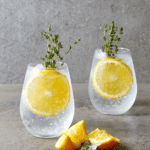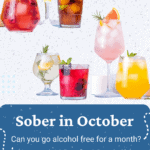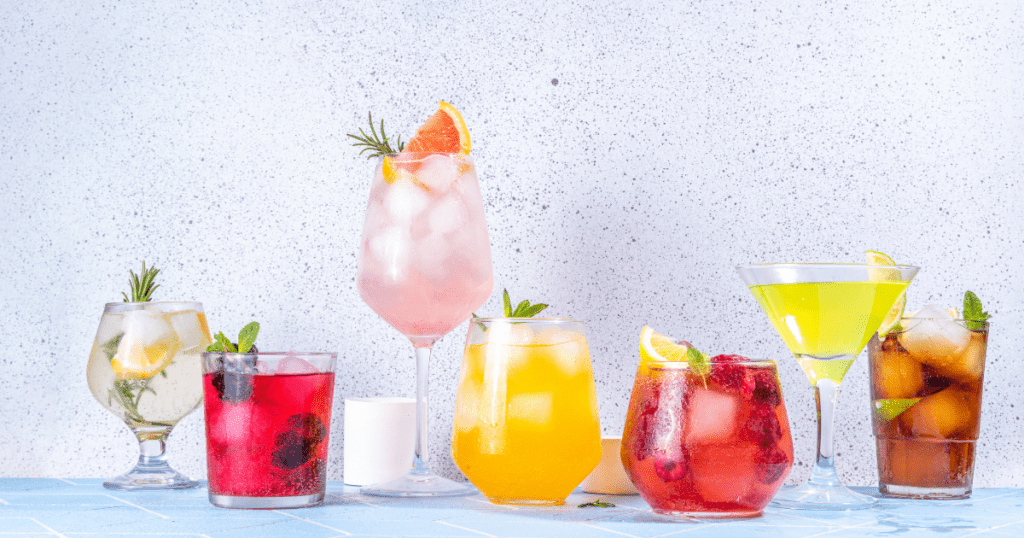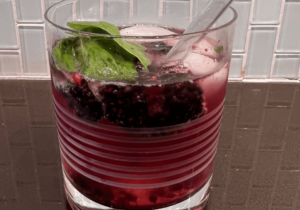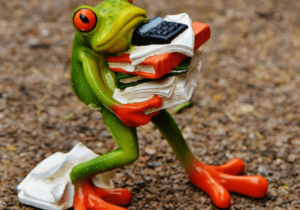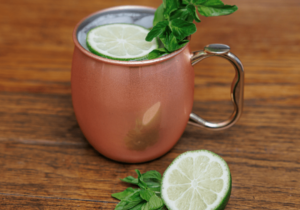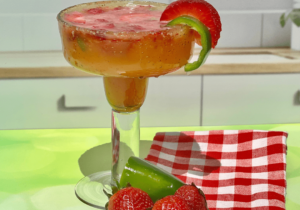Sober in October – An alcohol free experiment
Is it even a party if there's no alcohol? How can anyone make it through a family gathering without wine? And don't get me started on going out with coworkers or networking. Sound familiar? It certainly was for me. But as the years rolled on, I began to question the role of alcohol in my life. That's when I discovered Sober in October, and began a journey that transformed not only my relationship with alcohol but also my perspective on health and well-being.
Alcohol is everywhere. Do we even know how to drink in moderation, let alone go alcohol-free for a month? Sober in October may be one of the most intriguing challenges you've ever considered.
To be completely fair, drinking can be fun and help us take the edge off. It can connect us with our communities. Yet, at the same time, the impact of alcohol can have several adverse effects on physical and mental health from even casual alcohol consumption.
Sober October presents an opportunity to become aware of how deeply ingrained alcohol is in my life and. As a health coach, I understand that choices always serve us in some way. Consider the various roles alcohol plays in our lives:
- Having a drink to unwind at night
- Using alcohol to alleviate stress
- Coping with emotional relationships
- An excuse to socialize with friends
No Alcohol October: Raising a Toast to Reflection
When I did it the first time it was merely an experiment—a quirky health challenge I couldn't resist, as much as to “prove to myself” that I didn’t need alcohol.
I also wondered,
- Would cravings overpower my willpower?
- If so, would that mean I was an alcoholic?
- What would I do instead?
I knew it was time to explore the tension I felt daily. The Sober in October challenge gave me an entire month to be curious what would life be like without it.
- What experiences might I miss out on if I decided not to drink?
- Would my conversations be different if alcohol was out of the picture?
- How many things am I missing out on experiencing because alcohol plays such a big role in my life?
It was time to find out.
Year 1: The Sober October Experiment Begins
I was surprised by how much my habits and environment prompted me to have a drink, or several, every single day. It was eye-opening to really notice how ingrained alcohol was in my daily routine. It felt like a behavioral habit more than a physical dependence.
As I didn’t ask my partner to change anything, I was able to more readily notice that beers were stored prominently in the most accessible place in the fridge. It was literally on my “route” after work and continued into the evening with shared dinner and drinks.
I started wondering, “Why do I have a beer when I'm making dinner AND a beer with my dinner?”
As a week turned into two, I was happy to realize that I didn’t have any trace of physical addiction but began to really gauge my psychological dependence.
It makes me wonder what kind of drinking ritual I have and if I am just glossing over my actual intentions with the use of it. There are several ways alcohol is used in my life:
My thoughts turned to:
- What will I do when I am bored?
- What will I do when I am mad?
- What will I do when everyone else is having drinks?
Alcohol was a very simple answer to these questions.
Of course I willpowered my way through no problem, and having “conquored” the task figured I didn’t have any problems with alcohol. I congratulated myself, bragged on social media, and promptly resumed my life pretty much as it had been before.
Year 2: Tips for a Successful “Dry” Month
Sober October challenge ideas
Still in experiment mode, I figured I might as well make it an annual thing. To make the most of Sober in October month, I outlined the following tips:
- Prepare yourself, your mind, and your social circle. Tell your friends what you are doing, and see if anyone else wants to participate with you.
- Understand what prompts you to have a drink, emotions or routines, so you can stay in control.
- Eliminate as many triggers as possible. Remove alcohol from your house if you can, or at least put it out of sight.
- Plan outings to places that don’t serve alcohol (coffee shops, movies) and participate in Halloween activities that don't involve alcohol, such as hay rides and haunted houses.
- Come up with a firm but respectful answer for when you're offered alcoholic beverages at social events. “No thanks” or “I’m Sober for October this year” should be enough, but my experience is that it often isn’t. Having any kind of drink in your hand is a subconscious indicator and will make it harder for people to press you. Decide ahead of time what you will drink, and maybe even bring your own beverage.
- Start a creative activity so you don’t have to think, “What am I going to do on Saturday night?” Cooking or photography might be fun. Or maybe pick up a home project to escape the feeling of being at loose ends.
- If you feel like it, you can do some light exercise activity like stretching, walking, tai chi or yoga. Very light exercise keeps serotonin levels up without triggering stress hormones.
Think about what you’ll drink INSTEAD!
It may feel like you have a long month ahead of you, but these tips will make Sober October month more fun.
- Switch out your alcohol for something else. And put it in a fun glass.
- Coffee, tea, (these have the additional benefit of being a low calorie drink)
- Matcha latte, hot or iced, both come with bonus antioxidants
- Juice or juice spritzer, a healthy drink that will keep you hydrated with a few extra vitamins to boot!
- Maybe even a hot cider with a cinnamon stick? What could be more festive than that in October!
- Mocktails are becoming soooo popular because more people are looking for a way to enjoy a drink without the alcohol. Get creative, you just need the perfect combination of ingredients!
- Sparkling mineral water, has a nice sharp taste that’s reminiscent of alcohol, and a remarkably good substitute for the fizziness of beer!
- Heck, even a soda. It doesn’t have to be complicated.
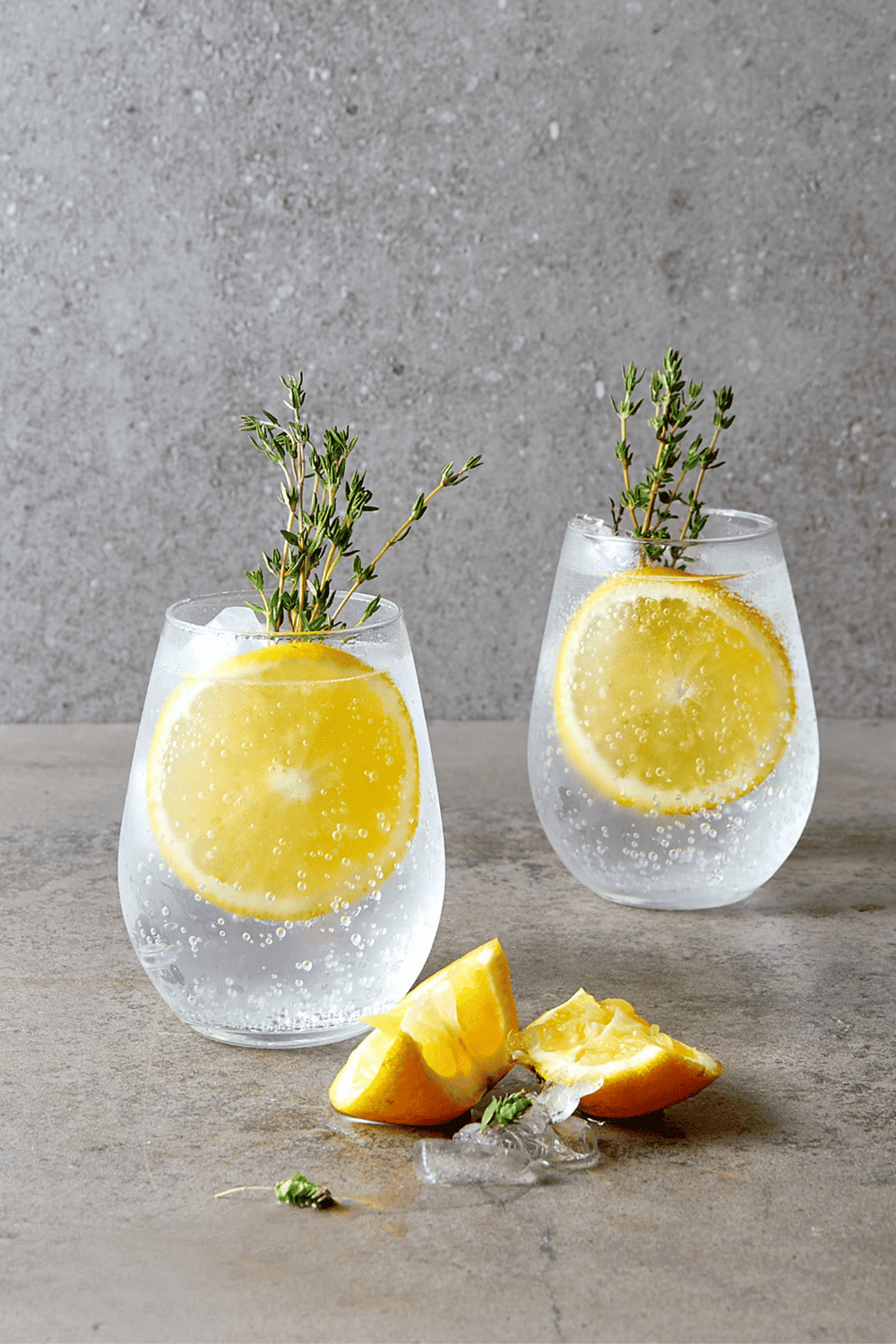
- You could try out some of the non-alcoholic (NA) craft beers that are hitting the market, OR even some of the new alcohol-free spirits (what kind of dark magic is this!!
)
What to do about CRAVINGS
- Cravings only last about 20 minutes. If you can distract yourself somehow, it will definitely pass.
- Mint has been known to disrupt a craving. Think about having some lozenges or gum on hand.
Drawbacks of not partaking
For someone who is a casual social drinker, there are no negative side effects to abruptly dropping alcohol for a month. If you've been drinking heavily recently, or regularly for a long time, you could experience an upset stomach as your liver works its way back. You may feel tired or have headaches but these usually pass within the 1st few days.
(This challenge is not meant for heavy drinkers or people with a serious alcohol addiction. If you try this and find that you are having serious side effects, please consult your doctor right away.)
You will probably experience social NONsupport. People might feel like you're judging them or feel like you think you're better than them if you're not drinking when they are. It can be really hard when friends and family say things like you can have one drink or just have a glass of wine.
The social pressure to drink is so pervasive, some people might accept drinks they really don't want. You may not even realize it, but if you aren’t drinking, it might give THEM the social safety they need to say no thanks to one too many!
Going alcohol-free for 31 days can help prove to yourself that you don’t need alcohol to have fun, to relax, or to socialize.
Year 3: Being Sober Curious… for HEALTH reasons
In my third year doing Sober for October (or Sobertober as I’ve come to call it 😆), I delved deeper into understanding how alcohol may be undermining my health goals, which included maintaining a stable weight, a stable mood, and improving energy levels.
I realized my drinking habits could very likely be causing me a whole set of different problems than the ones I attempted to “solve” with a beer or four a day.
I read all the studies about what going alcohol free would supposedly do for my health, and it sounded pretty compelling.
Health benefits of cutting out alcohol
1. Sleep
Without alcohol, you will sleep better. After a few weeks, you might find yourself waking up feeling refreshed. and ultimately have more energy.
- More than 2 drinks for men, or more than 1 drink for women, decreases sleep quality by 39%!
- Alcohol reduces the length of your sleep cycles, disrupting REM sleep, and reduces the depth of sleep during the second half of the night, making you wake up exhausted and walk around all day with an unshakable fatigue.
- Drinks within 2 hours of bedtime cause resting heart rates to stay high and heart rate variability to tank, both indicators that the body is under stress and not resting effectively.
- And to add insult to injury, alcohol relaxes your throat muscles, causing you to snore!
2. Mental Clarity
- Feeling clear-headed without hangovers gives you improved focus and concentration.
- The body trying to process alcohol increases cortisol levels, so when you stop consuming it you will experience less tension and stress, an increase in positive feelings with fewer “lows,” and a better mood in general.
3. Aesthetic Benefits
- Alcohol can interfere with digestion and absorption of critical nutrients. That might sound like whatever, but the blocked proteins, fats, antioxidants and vitamins (especially the B vitamin, folic acid) are the recipe for collagen. And no collagen formed + chronic dehydration = WRINKLES and dark spots.
- And while we’ve all heard that “alcohol has 7 calories per gram” (what even is a gram anyway???) but that's almost double the dreaded “carb” with NONE of the nutrients. So these extra “empty” calories are piling up, but worse than that… alcohol causes the liver to stop regulating blood glucose or digesting fat properly because it’s busy dealing with the toxic ethanol.
This causes a cascade reaction of your body trying to get back on an even keel… insulin and leptin (the hunger hormone) levels spike which causes cravings for starchy and sweet foods. That’s why it’s so hard to make healthy food choices. Cutting down or quitting alcohol can make it much much easier to maintain a stable weight (or lose weight if that is something that you’re interested in).
4. Social Connections
- Some people participate to support friends and family members who are sober or just to participate in a fun challenge.
- Cutting out alcohol may even help avoid getting in the middle of family drama during holiday get-togethers.
5. Financial Impact
- Save money on drinks. Alcohol is a luxury purchase at best, but for many it can be a serious financial burden. Work out how much you spend on alcohol in a week, then think about how much you’ll have saved over the course of a month!
Of course, if you purchase other beverages to replace alcohol, you might find this is not as relevant.
But what about resveratrol? Isn’t that supposed to be healthy?
Yes, this is a powerful antioxidant which can be found in wine… but let's be honest. We all know there are healthier sources. Eat a grape, and read on.
Does taking just a month off from alcohol really do anything to improve your life?
The changes have been well studied.
A 2015 study recorded the effects of a 4-week break from alcohol. Those who took part had normal drinking habits by average standards, not bingers.
By the end of just 4 weeks participants
- had lost an average of 40% of their liver fat
- 25% reductions in the blood markers for insulin resistance
- dramatic reductions in blood markers for cancer growth factors
- improved blood pressure readings
- significantly reduced their cholesterol levels
- experienced improvement of sleep and energy
- reported improvement of mood and well being
What I noticed: My Sleep Improved
Anecdotally, after a few weeks of not including alcohol, I noticed that my sleep felt more restorative and I began to wake up not still feeling tired (which was novel!). I was curious what the sleep data would show from my Oura ring.
It looked like when I don’t have beers with dinner, after a few weeks I start to wake up fewer times in the night and have more REM and deep sleep cycles. However in practical relevant terms, my mood seems better and I don’t have to fall out mid-day for a nap any more.
And scientific studies aside, in reality I had no way to notice if any of the other health benefits were occuring. And just 4 weeks wasn’t enough to motivate much lasting change… I quickly fell back into my usual routines.
Beyond Sobertober: Reimagining Life and Health as a Family
It’s become clear to me that Sober in October isn't just a challenge about abstaining from alcohol; it's about gaining insight into our relationship with it, and a pathway to self-discovery and better health.
As my family has begun to navigate the uncharted territory of a heart-healthy lifestyle that doesn’t really include alcohol, Sobertober has become the catalyst for profound shifts in our family dynamics and well-being. In Part Two, we'll continue to explore the impact of the challenge and the changes I’ve noticed during this remarkable journey.
Heather Lynn Darby helps office and tech professionals disrupt the cycle of chronic stress that undermines their health, and to recover from the negative effects of sitting at a computer all day. Find other articles written by Heather on her coach profile.
If you are largely sedentary at work and rely on your intellectual acumen for success, her take on body-mind interventions will help you find a balance between being "in the zone" and getting the amount of movement that will optimize your mental productivity and prevent health problems.

